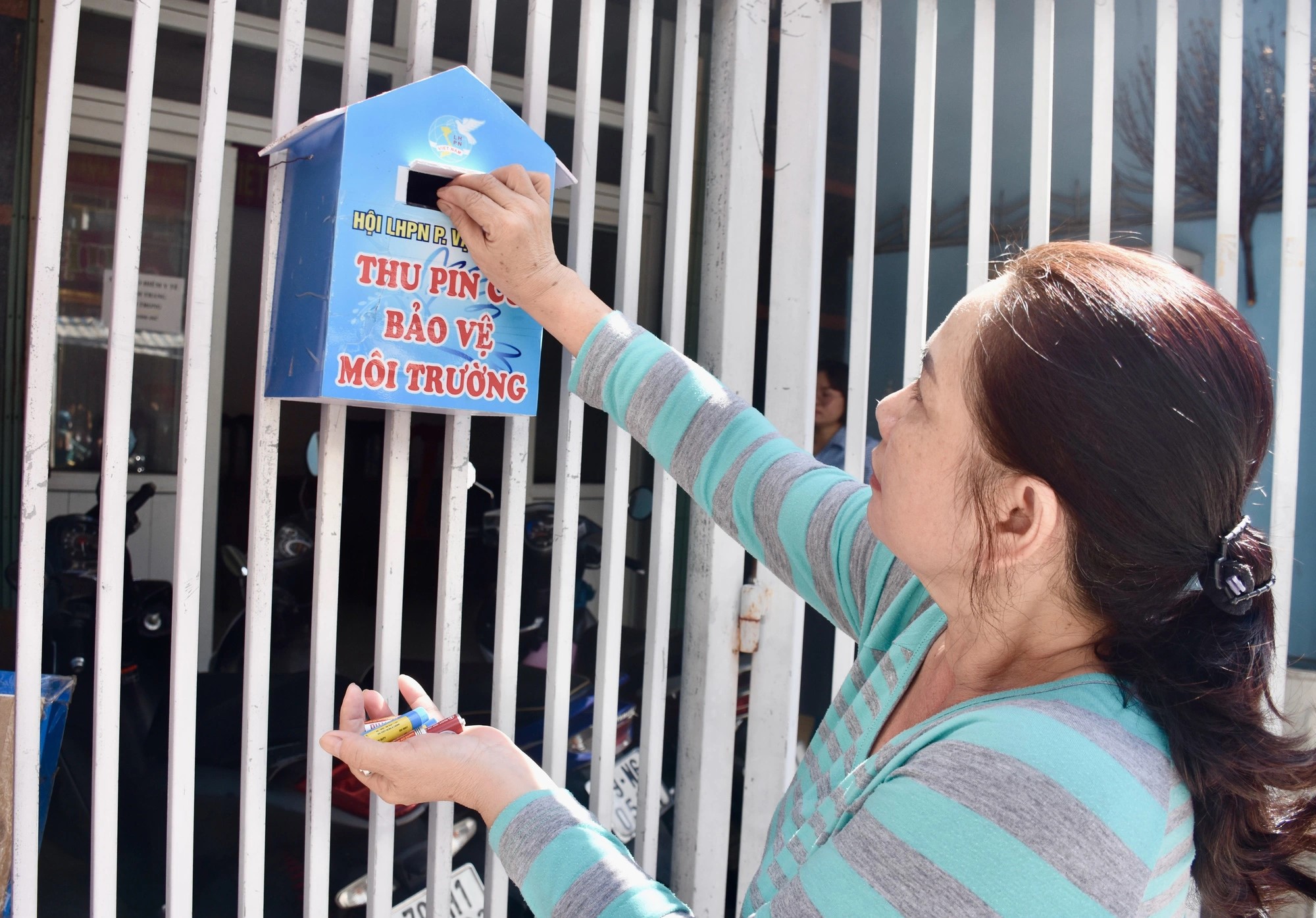Small home-shaped boxes placed or hung at various public sites have recently become popular in Nha Trang, the capital city of Khanh Hoa Province in south-central Vietnam, as they are used to collect waste batteries.
This is an effort launched by the local women's association to make it more convenient to gather and properly dispose of used batteries.
Doan Thi Mien, 59, arrives at house number 8 on Thong Nhat Street in Van Thanh Ward, Nha Trang. She takes out some dead batteries from her bag and throws them into a box hanging on the wall.
Mien, like other residents in the community, has not thrown away used batteries since the home-shaped box was set up.
Ever since, they have become more comfortable bringing old batteries to this collection site.
"Before, many people often discarded dead batteries without thinking about environmental pollution," Mien said.
"When they became more aware of the problem, they know how to sort out waste and keep an eye on protecting the environment as well."
According to Luong Thi Thanh Nu, head of the Van Thanh Ward Women's Association, the effort has been expended since October 2023, raising awareness among its key members and encouraging local participation.
Accordingly, used batteries would be collected and treated properly, ensuring that all safety and environmental criteria are met.
Along with Van Thanh Ward, the 'Home for Dealing with Spent Batteries' model has been implemented in Tan Lap Ward at locations such as alley 120 Nguyen Thien Thuat Street, Bac Thanh Church, Ngo Gia Tu Apartment Building, Tan Lap 1 Elementary School, and Tran Quoc Toan Middle School.

According to Nguyen Ly Duong Trung, secretary of the Tan Lap Ward Youth Union, the initiative's 'homes' are built of aluminum and painted blue.
On its surface is a noteworthy message: "Each old battery dumped into the environment pollutes 500 liters of water with mercury."
On average, each of the homes gathers between 20 and 30kg of spent batteries.
The Tan Lap Ward Youth Union intends to build these home-shaped boxes out of steel, which will allow them to hold more used batteries while also being more weather-resistant.
"Dead batteries are taken to a collecting center before being transported to be processed at a factory in Quang Nam Province, [central Vietnam]," Trung told Tuoi Tre (Youth) newspaper.
"The Youth Union of Tan Lap Ward and a few donors fund the transportation costs.
"We've collected approximately 250kg of outdated batteries since the beginning of the year.
"What makes us happiest is that the locals are becoming more environmentally conscious.
"To encourage more people to join the initiative, our ward plans to hold an event in August where used batteries will be traded for trees."
Like us on Facebook or follow us on X to get the latest news about Vietnam!




















































